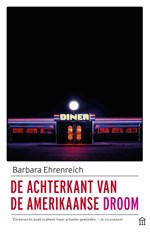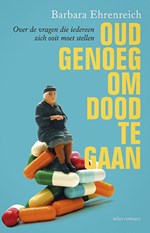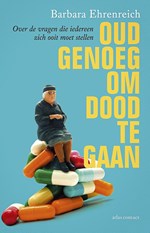Its not all bad news: New Investigative Journalism initiatives
23 november 2018On Friday 23 November, The Erasmus Prize Foundation and De Balie organise a one-day festival on investigative journalism in honour of Erasmus Prize winner 2018 Barbara Ehrenreich. In this specific programme (15:00), the field of investigative journalism on economic hardship in the Netherlands, is explored.
On November 27th, journalist and writer Barbara Ehrenreich (1941) will receive the Erasmus Prize at the Royal Palace in Amsterdam. The theme of this year’s Erasmus Prize is ‘The Power of Investigative Journalism’. Barbara Ehrenreich is commended for her courage in putting herself on the line in her journalistic work. By leading the life of people in precarious situations, she gives a voice to groups in society that would otherwise remain unheard, and she lets us see life as people on the underside of society live it.
By presenting the best practices from Dutch journalists and makers, this program aims to open the conversation on new forms of journalism and networks. What methods do journalists use? How do they choose their topics, and can one be too close to their subject? Is a journalist just a spectator, or is there also a social duty that needs to be fulfilled? And how can journalism give a voice to the voiceless?
The three "best practices" of the journalists in the panel are presented before going into an in-depth panel discussion. All in their own way, their work is related to Ehrenreich’s work on economic hardship. In her famous book Nickel and Dimed and through the Economic Hardship Reporting Project, Ehrenreich puts a human face on financial instability, poverty and economic insecurities. This panel shines light on initiatives in the Netherlands working towards that same goal.
About the speakers
Leon Verdonschot: Journalist and director of the documentary Het Schoonmakersparlement. In this (freely available) film, Verdonschot documents the life and work of Nadine Douared, Tim Edwards and Khadija Hyati, three cleaners fighting for better working conditions though the trade union initiative "Het Schoonmakersparlement" or "The Cleaners Parliament".
Esther Gould and Sarah Sylbing: Documentary makers of the series Schuldig, 50 Cent and De Rekening van Catelijne. Gould and Sybling’s work deals with social themes such as poverty, migration, health care and ageing. For the series, Schuldig, Gould and Sybling were awarded with "Journalist of the Year 2016".
Thomas Muntz: Philosopher and journalist at Platform Investico, writing on energy and climate issues. Muntz’s work exposes the role of big companies and government in the energy industry and climate issues, and criticizes bureaucratic and inadequate policies.
The conversation is moderated by Xandra Schutte. Schutte is editor-in-chief at De Groene Amsterdammer and former editor-in-chief at Vrij Nederland. Her own writing mostly focusses on literature, art, feminism and other social themes. In 2016 she was awarded with De Gouden Ganzeveer, honoring her contribution to the Dutch written and published word.
*This program is in Dutch*
Tickets
This event is a part of The Investigative Journalism Festival 2018, honouring the work of Barbara Ehrenreich, winner of the Erasmus Prize 2018. For more information on the Festival click here.
For a combination ticket for It's not all bad news and Joris Luyendijk meets Barbara Ehrenreich (€15) please click here





